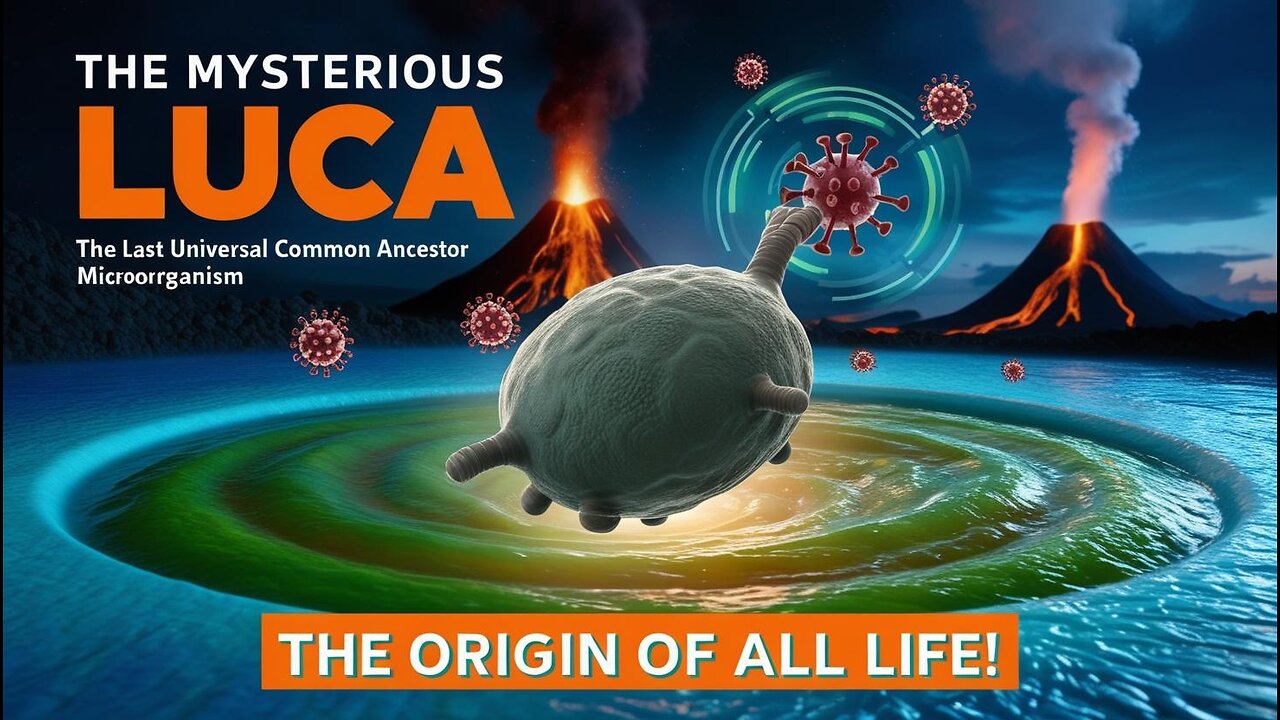Premium Only Content

Scientists Uncover LUCA: The Mysterious Organism That Gave Rise to All Life on Earth
New research has revealed groundbreaking insights about LUCA (the Last Universal Common Ancestor), the organism that all life on Earth can trace its origins to. Scientists have discovered that LUCA, which existed around 4.2 billion years ago, was not a simple organism but a complex one that shaped early ecosystems and played a key role in the evolution of life.
In this video, we dive deep into the recent study led by the University of Bristol, which traces LUCA’s timeline and uncovers the genetic and ecological traits that allowed it to thrive in Earth's harsh early environment. LUCA had a genome capable of encoding over 2,600 proteins, a sophisticated immune system, and an anaerobic metabolism, suggesting it was far more complex than previously thought.
We also explore the implications of these findings for understanding life’s emergence on Earth and the possibility of life on other planets. From ancient microbial warfare to LUCA’s role in early Earth ecosystems, this discovery sheds new light on the origins of life itself.
If you're fascinated by the origins of life, evolutionary biology, or astrobiology, this video is a must-watch!
🔬 Key Highlights:
LUCA's genetic complexity and evolutionary significance
New research on LUCA's age and ecological role
How LUCA's interactions with viruses shaped early life
The implications of LUCA's discovery for understanding life on other planets
Watch till the end to uncover how LUCA’s story could rewrite the future of astrobiology!
📚 Related Research: The study “The nature of the last universal common ancestor and its impact on the early Earth system” was published in Nature Ecology & Evolution. [Link to article]
Don’t forget to like, comment, and subscribe for more exciting insights into the science of life!
-
 2:32:03
2:32:03
BlackDiamondGunsandGear
14 hours agoAFTER HOURS ARMORY w/ DLD & John from GOA & FLR
32.9K4 -
 1:05:28
1:05:28
Man in America
15 hours agoTREASON? Obama, Hillary, and Soros in the New World Order Agenda EXPOSED w/ Mel K
97.4K86 -
 2:22:46
2:22:46
The Connect: With Johnny Mitchell
16 hours ago $7.83 earnedOne Man's Mission To Stop Human Trafficking: How A Billionaire Mercenary Saved Hundreds Of Children
30.1K19 -
 2:35:13
2:35:13
Tundra Tactical
11 hours ago $15.12 earned🔫 California Ammo Win, Sig Sauer P320 Controversy, Meme Review & Would You Rather! 🎉🔥
44.5K7 -
 16:24
16:24
Forrest Galante
9 hours ago6 Deadliest Man Eaters to Ever Exist
31.2K11 -
 10:14
10:14
MattMorseTV
13 hours ago $16.52 earnedThe EU is in HOT WATER.
99K61 -
 6:51:32
6:51:32
The Rabble Wrangler
1 day agoPUBG with The Best in the West!
27.3K1 -
 3:57:19
3:57:19
EvilT4000
12 hours ago $10.31 earnedSaturday.....🟢For energy and focus click my Dubby link!
37.7K4 -
 3:02:55
3:02:55
SlingerGames
8 hours agoSpartan Night - Halo and More | Creator for @SELFMADEGGS
24.5K -
 3:57:49
3:57:49
Mally_Mouse
14 hours agoSpicy Saturday!! - 10k CELEBRATION! - Let's Play: Labyrinthine
37.3K1